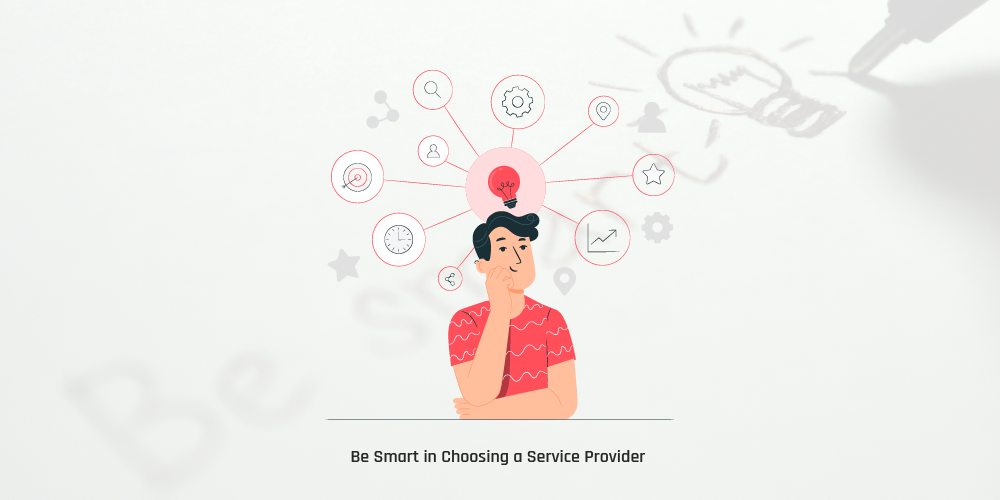The Basics to Outsourcing Software Development

In business development, there are problems that can be quite pressing regardless of the size of your company. Whether you’re the founder of a startup, the manager of a mid-size family business, or the CEO of a global company — you’ll spot some red flags, for sure. One scenario is when you encounter the need to outsource software development and let the experts get the job done. This way, you can focus on your company’s core competencies.
As for outsourcing software development, it means you’re turning to a third party service provider. You are delegating control of a project to a qualified, external company. You hire them to take on a specific task. It can be to finish an existing project, create a brand new product, perform software infrastructure audit, among others.
In this post, we’re going to take a closer look into the concept of software outsourcing. But first, you need to understand what’s behind the draw of software development outsourcing.
Why Outsource Software Development in the First Place?
Business process outsourcing is advisable if you’re not adept with web, mobile and software development. Below are some of the main reasons why you should consider this emerging trend.
Work with Experts and Scale a Development Team
Outsourcing software development offers an opportunity to find exceptional talents from around the world. You can also gain some insights of the country or region you’re outsourcing to. This can improve your internal practices and you’ll be able to get first-hand insights into different business operations.
On a fundamental level, outsourcing software development will help you delineate what’s professional and what isn’t. If you hire top-notch talent, you can discover new ways of transforming certain aspects of your business’ structure. You can make sure that it’s ready to take on the challenges of the competitive nature of today’s business landscape.
Cut Costs Associated with Keeping an In-house Team
As far as global IT trends go, software outsourcing is at the top of the list. Companies are now embracing its concept. They choose this road to travel towards efficient and cost-effective software development projects. It’s more practical than building an in-house team of developers. Hiring alone takes time, and even if you have a department that can handle it, you’d still make the final decision.
The challenges don’t stop there though. After you’ve hired the right people for the job, you need to check their work and ensure that the project is still within budget. Going through all these can be taxing for you as a business owner. You can end up compromising the core activities of your company.
Flexibility: Hire Software Outsourcing Companies Only When Needed
There’s no pressure to sustain a long business relationship because it’s project-based. This flexibility also adds to the cost reduction advantage since it is cheaper than hiring an in-house team all year round. Another advantage of flexibility is that working remotely is becoming a global standard. The location of the development team is now irrelevant to businesses. This allows you to hire developers from a global pool of talent without sacrificing the quality of service.
Rapid Software Development

There’s little to no time wasted in on-boarding since the outsourced team of developers consists of skilled professionals. In large companies, it’s difficult to complete projects fast. This is because there are several layers to get through before achieving the desired result. With software outsourcing, there’s a simple startup process implemented. It kicks off software development into high gear and shortens the software delivery time. Also, the team of developers strives to deliver the project fast and make it market-ready in less time than an in-house team.
The bottom line is that outsourcing is the more logical choice. But considering the current technological landscape, it’s very difficult for businesses to stay afloat. Why? Because new software is being introduced on a daily basis. What’s new today is likely old news tomorrow. Thus, companies are shifting their strategy towards software outsourcing to reach goals faster. It will allow you to gain competitive advantage in the software technology market.
Most Common Software Outsourcing Models

The good thing about outsourcing software development is that you can supervise the outsourced team in any way you like! There are different models that you can use to outsource the development and testing of your software to suit your specific needs.
The following are common models that you can use to supervise your team:
Project-Based Model
This involves outsourcing end-to-end development of the entire software project. You provide project requirements to the team, and it works on the project from start to finish.
Before the project kicks off, you and the outsourced team set the cost and deadline. Remember that the cost does not depend on the resources used or the number of hours worked. This gives the developers total control over the planning and implementation of the project.
When should you use this model?
- If the scope of the project is well defined.
- If the requirements of the project are clear.
- If the deadlines are set and approved by both parties.
Dedicated Team Model
This involves the typical hiring a team of specialists from a third-party company. These software development experts work together and serve as an extension of your core group. The team can consist of different professionals like software engineers and UX designers. They make sure that product development procedures are running effectively.
When engaging the services of a dedicated team, you can hire a project manager. This person will oversee the operations of your outsourced team and then reports to you.
When should you use this model?
- If you have a highly scalable software.
- If your software needs routine maintenance and updates.
- If you intend to establish a long-term collaboration with an outsourced company.
Staff Augmentation Model
Here, the third-party vendor puts together the software development team, but you’ll be the one in charge of the core processes.
You will manage the software development project and all individual tasks. You will also be responsible for delegating responsibilities within your outsourced team. The developer is only responsible for the productivity of the team. They will address concerns related to team members like allowances, compensations, etc.
When should you use this model?
- If you want more involvement in the development process.
- If you want to have more creative control of the project.
Software Development Outsourcing Tips
Here are important things to keep in mind when outsourcing your software development processes:
Be Smart in Choosing a Service Provider

We mentioned earlier that cost reduction is a major benefit of outsourcing software development. However, it must not be the only factor involved when choosing a service provider. Lower cost may mean lower quality. So don’t make decisions based solely on cost. Your chosen company must be able to offer a reasonable price because they have the experience and expertise needed to get the job done.
Remember that the quality of your software will depend largely on the quality of your service provider. So how can you hire the best software outsourcing company?
Read their reviews and check their previous clients. This will give you a good idea of their skills and experience. It also brings to the fore their technical capabilities.
Take note of the following features
- User Interface and Experience (UI/UX) – How easy it is to navigate and engage with the content.
- Design – How visually appealing the software is.
- Mobile Functionality – How seamless the tool runs on mobile devices.
- Software Loading Time – How fast the tool loads
Start Off with a Test Project
You must be well aware of the capabilities of a software company before hiring their services. A good way to begin is to ask their development team to work on a test project. Their performance will help you decide if you want to continue working with them.
Here are things that you can learn about your intended outsourcing partner through this trial project:
- Reliability and Trustworthiness – Is the company open and honest about their work? Are they reliable and able to deliver right on schedule?
- Communication Skills: Does your outsourced team keep communication lines open? Do the members follow instructions and ask relevant questions?
- Time Management: Does your outsourced team set deadlines of their own? Are they able to submit work on time?
Running a test project requires some time and resources. But it ensures that you won’t deal with any major problems in the future.
Use Tools to Monitor Performance
One of the problems of outsourcing software development is that it’s difficult to keep tabs on the performance of your remote team.
So, how can you check:
- If they are working during designated office hours.
- If they are doing non-work activities or visiting non-work related websites.
- If they are billing you for idle work hours.
Parting Words and Key Takeaways:
Outsourcing is an easy way to speed up your software development process. You will be able to reduce fixed costs and work with skilled developers from across the globe. This holds true whether you’re a small business owner or the CEO of a multinational company.
Outsourcing software development will allow you to leverage the expertise of a local or foreign workforce. And in the long run, you’ll reap the benefits as it will boost the growth of your business.
Do you believe it’s time for you to try outsourcing software development? Don’t hesitate to contact us. Let’s discuss your project, coffee’s on us!

